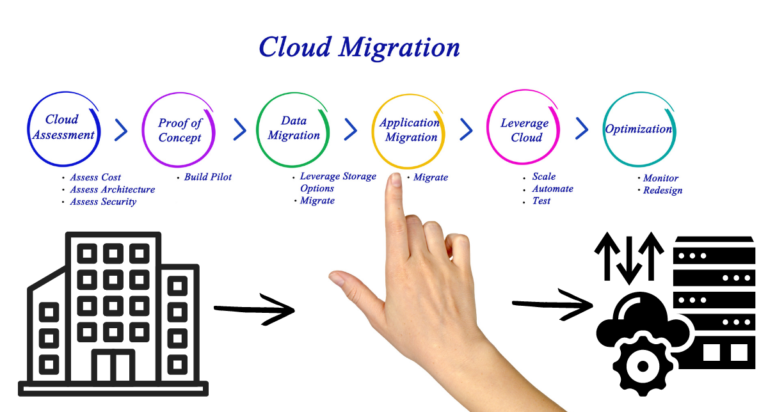
Online product presentation with project team. Concept web, mobile application, internet, modern technology. Low poly. 3d vector isometric illustration.
Mobile app development is the process of designing, building, and maintaining software applications that run on mobile devices like smartphones and tablets. These apps can be built for different operating systems like Android and iOS, and they serve a wide range of purposes, from entertainment and social media to business and productivity.
The mobile app industry has witnessed massive growth in recent years. People rely on their mobile devices more than ever, using them to perform a variety of tasks, from shopping and banking to communication and entertainment. As a result, businesses and individuals are eager to create mobile apps that cater to this ever-expanding demand.
In this article, we’ll break down the essential components of mobile app development, its key features, and the services that help businesses develop successful mobile apps.
What is Mobile App Development?
Mobile app development refers to the process of creating software applications that operate on mobile devices. These apps are designed to meet specific needs and can function across a variety of industries, including retail, healthcare, finance, education, entertainment, and more.
The development process involves several stages, including planning, designing, coding, testing, and deployment. Developers use various programming languages, frameworks, and tools to create mobile apps, with Java, Kotlin, Swift, and React Native being some of the most commonly used technologies.
Types of Mobile Apps
There are three primary categories of mobile apps, each with its own set of characteristics and advantages.
1. Native Apps
Native apps are built specifically for one platform—either Android or iOS—using the respective platform’s programming languages and development tools. For example, Java or Kotlin is typically used for Android apps, while Swift or Objective-C is used for iOS apps.
Native apps have the advantage of being optimized for performance and can take full advantage of the features of the device, such as the camera, GPS, microphone, and sensors. They also tend to offer a more responsive and reliable user experience. However, developing native apps for multiple platforms requires more resources and time, as each version of the app must be developed separately.
2. Hybrid Apps
Hybrid apps are a combination of native and web apps. These apps are built using web technologies like HTML, CSS, and JavaScript, but they are wrapped in a native container that allows them to be installed on a device. Hybrid apps can run on multiple platforms with a single codebase, which reduces development time and cost.
However, hybrid apps may not be as fast or responsive as native apps, and they may face limitations when it comes to accessing device features or handling complex functionality.
3. Web Apps
Web apps are not installed on a device like native or hybrid apps. Instead, they run through a mobile web browser. Web apps are built using web technologies like HTML5, CSS, and JavaScript, and they are designed to work across multiple platforms with minimal customization.
While web apps are relatively easy and quick to develop, they depend on internet connectivity and may not perform as well as native or hybrid apps. They also have limited access to device features, which can restrict their functionality.
Key Features of Mobile Apps
Mobile apps can vary significantly in terms of features depending on their purpose, target audience, and platform. However, some common features are found across most mobile apps:
1. User Interface (UI)
The user interface is the visual aspect of the app that users interact with. A clean and intuitive UI is crucial for ensuring a positive user experience. UI design focuses on aspects such as layout, colors, typography, buttons, and icons. A well-designed UI makes the app easy to navigate and helps users achieve their goals quickly and efficiently.
2. User Experience (UX)
UX refers to the overall experience users have while interacting with the app. It focuses on factors such as ease of use, responsiveness, and satisfaction. A good UX design ensures that users can easily perform tasks, navigate through different sections of the app, and get value from the app without frustration.
3. Push Notifications
Push notifications are messages sent by the app to a user’s device even when the app is not actively in use. These notifications are a powerful way to engage users, alert them to new updates, or remind them of certain actions. However, it’s important to use push notifications carefully to avoid overwhelming users with irrelevant or excessive messages.
4. Integration with APIs
Most mobile apps require access to external services and data, which is achieved through APIs (Application Programming Interfaces). APIs allow the app to interact with other applications or services, such as social media platforms, payment gateways, or cloud storage services. API integration enhances the app’s functionality and allows for smoother interactions with other services.
5. Security Features
Security is a crucial aspect of mobile app development, especially for apps that handle sensitive data like financial information or personal details. Features such as encryption, secure login methods (e.g., biometric authentication), and data protection measures help keep user data safe and prevent unauthorized access.
6. Performance Optimization
Performance is a key factor in determining how well an app works. A slow or buggy app will frustrate users and drive them away. Mobile app developers optimize performance by reducing the app’s load time, minimizing resource consumption, and ensuring smooth interactions across various devices.
Mobile App Development Process
Creating a successful mobile app requires careful planning, design, and execution. Below is an overview of the typical mobile app development process:
1. Planning
The planning phase is crucial for determining the app’s objectives, target audience, and core features. During this stage, developers, designers, and stakeholders collaborate to define the app’s goals and requirements. This phase also involves market research, competitor analysis, and a rough estimate of the development timeline and budget.
2. Design
The design phase includes both the user interface (UI) and user experience (UX) design. Designers work on wireframes, prototypes, and visual mockups to establish the app’s layout, navigation, and overall look and feel. This phase is important for ensuring the app is both functional and aesthetically pleasing.
3. Development
The development phase involves coding the app’s front-end (what users see) and back-end (server-side logic, database interactions). Developers use different programming languages and tools based on the app’s platform and architecture. During this phase, the app is built, and developers ensure that it meets the requirements set during the planning stage.
4. Testing
Once the app is developed, it undergoes a rigorous testing process. Quality assurance testers check for bugs, performance issues, and compatibility across different devices and operating systems. Testing ensures that the app functions as expected and provides a smooth experience for users.
5. Deployment
After the app has passed testing, it is ready for deployment. Developers submit the app to the respective app stores, such as Google Play for Android or the Apple App Store for iOS. The app undergoes a review process, which may take a few days to weeks, depending on the platform. Once approved, the app is made available for download by users.
6. Maintenance
Post-launch maintenance is an ongoing part of mobile app development. Developers must regularly update the app to fix bugs, add new features, and ensure compatibility with the latest versions of mobile operating systems. App maintenance is essential for keeping the app relevant and functional over time.
Mobile App Development Services
To successfully develop a mobile app, businesses can leverage a variety of services provided by specialized agencies or development teams. Some of the key services in mobile app development include:
1. App Design and UI/UX Services
These services focus on designing the visual elements of the app and ensuring that users have a smooth and engaging experience. App designers create wireframes, prototypes, and user interfaces, while UX designers focus on the overall user journey.
2. App Development
App development services involve the actual coding and building of the app. This includes both front-end (UI) and back-end development, which requires proficiency in programming languages, frameworks, and platforms. App developers handle everything from integrating APIs to optimizing performance.
3. App Testing and Quality Assurance
Quality assurance is essential for delivering a high-quality app. Testing services ensure that the app works correctly across different devices and operating systems. QA testers look for bugs, glitches, and other issues that may affect the user experience.
4. App Maintenance and Support
Once an app is launched, it requires ongoing maintenance to address any issues, update features, and ensure compatibility with new operating system versions. App maintenance services help businesses keep their apps running smoothly and up to date.
5. App Marketing and Promotion
After an app is developed, businesses need effective marketing strategies to promote the app and attract users. App marketing services can include app store optimization (ASO), digital advertising, influencer marketing, and social media campaigns.
6. App Analytics and Performance Monitoring
To measure the app’s success and identify areas for improvement, businesses need app analytics and performance monitoring services. These services track key metrics like user engagement, retention rates, and conversion rates, providing valuable insights for enhancing the app’s performance.
Conclusion
Mobile app development plays a significant role in today’s digital world. Whether you’re a business owner looking to create an app for your customers or an individual developer building a personal project, understanding the different types of apps, essential features, and development processes is crucial to success.
With the right approach, technologies, and services, businesses can create mobile apps that offer valuable experiences to users, leading to improved engagement, loyalty, and growth.







